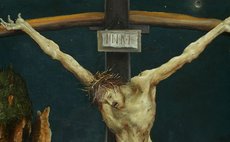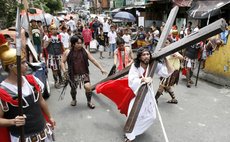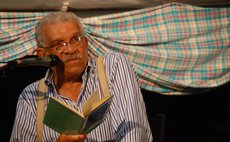The Servant Church
The resignation of Pope Benedict XVI and the subsequent election of Pope Francis, the first pope from the Western Hemisphere, invite us to deep reflection on the nature of the Church and the role of the Church in the world.
From the very moment of his election, Pope Francis has displayed a certain leadership style as head of the Church; he has manifested, in no uncertain terms, that he is a new kind of pope; he has spoken of himself as a pope for the poor. He would like to see the Church as a Church for the poor. He has endeavoured to shed, in the short space of time that he has been the leader of the Church, a lot of the pomp, ceremony and glamour that are associated with the papacy. He has adopted a very simple life-style. In fact, the very name Francis which he has taken, is indicative of the kind of pope he wishes to be.
Saint Francis of Assisi was a very poor man, born of a middle-class family, but who divested himself of all wealth and embraced a life of poverty in the spirit of Christ who, as St. Paul says, "Though rich in all things made himself poor for us." In fact, he had a spiritual marriage with Dame Poverty. He founded a congregation of men willing to embrace his vision of poverty as the very basis of the Christian life, bearing in mind the words of our Saviour Jesus Christ himself, "Blessed are the poor."
What does the election of Pope Francis mean for us and for the world? In one sense, it is an admission that hitherto the Church has been too eager to embrace wealth and power, that too much of the world has tainted the Church. Indeed, it has been difficult for the leadership of the Church to do much about that. But, beginning with Pope John XXXIII who did realise that something had to done about the problem, an effort was made to reverse the trend. Pope John Paul I abandoned the tiara at his inauguration. Pope John Paul II abandoned the regal "We" and was the first pope to speak of himself as "I" and not "We". Pope Benedict XVI too continued in that vein. Yet there has been a lot that has remained traditional in the Church - the lifestyle, the titles, even the title of Prince of the Church. In a sense, the Church has maintained, to a great extent, an image of triumph. The Triumphant Church has been the kind of Church we had throughout the centuries after the early years of the persecution.
Today Pope Francis heralds the Servant Church and, I dare say, that he will go down in history as the Servant Pope. In every respect, he has displayed that he wants to make not an entire break with the past but a development on the vision of the past which has recognised the need for embracing a life of simplicity, a life of dedication to the poor, a life of self-effacement not only for the pope but for the bishops and the priests as well, the whole clergy.
There are many Christians who have come to realise that the Church cannot speak to the world with any authority if she does not divest herself of much of the pomp and privileges and the sense of triumphalism that has often marked the Church. Certainly, the Church is the Bride of Christ; there are divine elements in the Church. But there is also the human element that has weighed so heavily that sometimes the divine element has been obscured, and men and women of the world have been more prone to recognise the evils in Church leaders than the ministry of the sacraments, the ministry of love and compassion, of forgiveness, of sharing, of concern for our fellow-men.
We welcome Pope Francis. At the moment he is riding on a wave of enthusiasm. But there is a great challenge before him. Because being human as we are, even leaders of the Church do not easily divest themselves of whatever human power, whatever wealth, whatever comfort and whatever exaltation they may enjoy. In fact, often there is a fear of giving up these things, a very human fear. They do not want to let go. We see that throughout the world and we also see it in the Church.
Pope Francis gives us hope. But we need to pray for him. Already we can see that he is a brave warrior, saying many things that people dared not say, people feared to say. The challenge is very immense. It is not easy to embrace a life of self-abnegation, bearing as we do the innate desire to project ourselves, to get on materially, to make an impact on society and even to indulge in self -aggrandizement. We preach humility. But humility does not come without a price, and often the price is very high. To be humble is to allow people to walk over you. Pope John XXIII experienced that already when he made reference to people who take advantage of you if you are very easy-going. Pope John XXIII remarked, with tears in his eyes, one day to friend that often people turned and twisted his words. The same will be done to the present pope. He is a very open-minded man, a very easy-going man; he will say many things, and many things will be misunderstood.
We pray that the Church may welcome this new pope, pray for him, and give him enthusiastic support. He is already an old man, 76 years old. We pray that during his term of office he may be able to inspire the bishops and the priests with his vision, so that the lay people may allow themselves to be inspired by the pope's life, by his vision and his endeavour to renew the Church.
Pope Francis recognises that all the structures of the Church must be seen to be imbued with the Spirit of Christ. Only then can the Church reflect the true face of Christ and be faithful to the call to be the salt of the earth and the light of the world. Very likely, the path on which Pope Francis has set the Church was one of the considerations of Pope John Paul II when, in an address to the Cardinals, he stated, "We need to take on new priorities to make the Church more credible."




